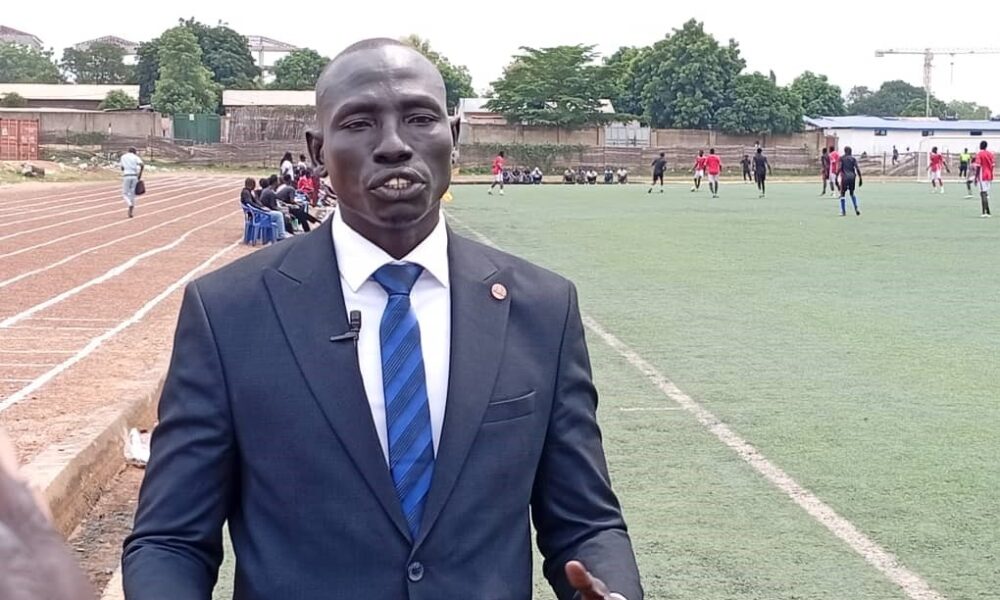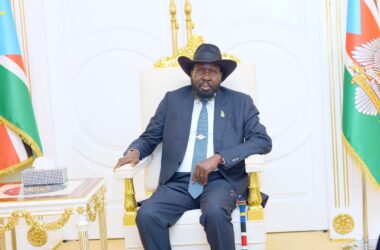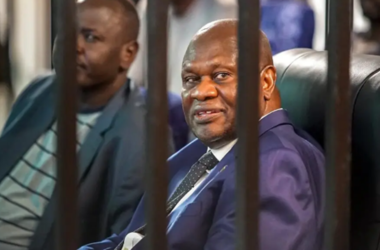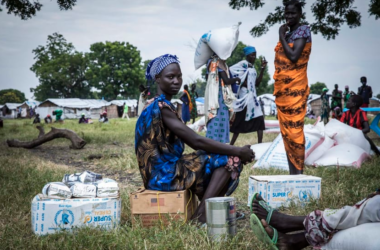By Yiep Joseph
Despite ongoing insecurity and economic challenges, South Sudan Commission for Refugee Affairs has revealed that the country is currently hosting more than 600,000 registered refugees.
Yawusa Daud Kintha, Deputy Director for Protection and Refugee Welfare at the commission, noted that the numbers have overwhelmed resources, requiring urgent need for support.
Daud made the remarks while speaking to journalists during an athletic event that brought together both the host community and refugees.
This event is part of the commemoration of World Refugee Day, observed annually on June 20, which honors the resilience, strength, and courage of refugees forced to flee their homes due to conflict, persecution, or natural disasters.
Daud appealed to partners for assistance.
“We as South Sudanese we need to know this country is hosting more than 600,000 register refugees. We have a lot of challenges that need both the government and the partners to team,” he said.
One major challenge is the lack of funding for youth engagement activities.
Daud explained that refugees are facing difficulties due to aid cuts by the United States, which have impacted the operations of organizations assisting them.
He highlighted that refugees are struggling to access education and are experiencing food shortages due to ration cuts in the camps.
“Coming to Education as well, most of the refugees who are in Refugee camps every year we have over 1000 refugees completing secondary school and they face it hard to join University,” he said
“Many are in refugee camps doing nothing, no schools, also children marrying at a very tender age after completing secondary and could not go forward,” he said.
“Since the funding was cut from UN Agencies, what the refugee commission did was to buy land for refugees to cultivate”, he added
In response to the funding cuts from UN agencies, Daud mentioned that the refugee commission has taken steps to buy land for refugees to cultivate.
He expressed appreciation for the South Sudan government’s commitment to protecting refugees within the country.
While many refugees are still in camps, others have integrated into local communities after registration.
The commission continues to focus on refugee protection and supports the formation of organizations like Refugees Lead Organizations (RLO).
Anyama Saviour Alex, Community Engagement Specialist at the Ministry of Agriculture and Food Security, noted that the athletic games were designed to promote peaceful coexistence between the host community and refugees.
“For both refugees and host communities, we bring them together through sports so that they are able to co-exist,” he said, urging the government and partners to maintain their support to ensure the protection and empowerment of refugees.
Joseph Ramadan William of the South Sudan Athletic Federation added that sports, particularly athletics, serve not just as a game but as a source of unity and joy.
He emphasized that the games would help identify potential athletes to represent the country in future competitions.
Umnia Emmanuel Mose, a refugee who participated in the tournament, expressed gratitude to the government and partners for bringing the host community and refugees together.
She urged continued support, stating that ongoing assistance would help refugees develop their talents.




